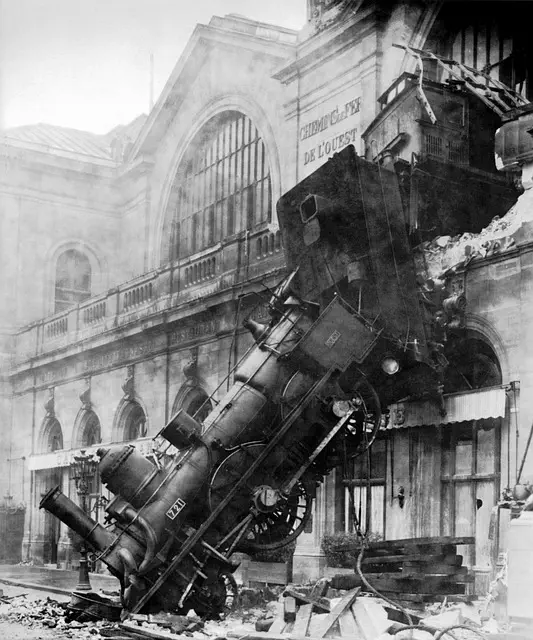Trucking companies in New York City, particularly The Bronx, operate under stringent legal frameworks regarding liability for accidents and damages, especially in cases involving personal injuries or medical malpractice. In dense areas like Manhattan, where medical malpractice cases are common due to patient transfers, companies must ensure proper training, safety regulations, and vehicle maintenance. Legal representation is crucial for victims navigating these intricate web of liability, particularly in medical malpractice cases Manhattan. Companies face potential legal repercussions for negligence, including compensation for injuries suffered by passengers and damaged medical supplies. Adequate insurance coverage is vital for risk management and fostering a culture of safety and accountability within trucking companies.
In the dynamic landscape of The Bronx, understanding trucking company liability is paramount. This article delves into the intricate web of responsibilities faced by transportation firms, particularly in light of medical malpractice cases Manhattan has witnessed. We explore the legal framework designed to hold companies accountable, from driver negligence leading to passenger injuries to cargo-related incidents causing property damage. By examining insurance coverage and its role in risk management, readers gain insights crucial for navigating this complex environment.
- Understanding Trucking Company Liability in The Bronx
- Medical Malpractice Cases: A Focus on Manhattan
- The Legal Framework for Holding Companies Accountable
- When Drivers Are at Fault: Passenger Injury Claims
- Cargo-Related Incidents: Who's Liable for Damage?
- Insurance Coverage and Its Role in Risk Management
Understanding Trucking Company Liability in The Bronx

In The Bronx, trucking companies operate within a complex legal framework regarding liability for accidents and damages. Understanding their responsibility is crucial, especially in cases involving personal injuries or medical malpractice. When a truck causes harm, whether through collision or other incidents, the company’s liability can extend beyond direct financial compensation to victims.
Trucking companies are held accountable for the actions of their employees, particularly drivers, during work-related activities. This includes ensuring proper training, adhering to safety regulations, and maintaining vehicles in good condition. In New York City, including Manhattan, where medical malpractice cases may arise due to transport-related incidents, companies must comply with stringent legal requirements. Knowledgeable legal representation is often sought by victims to navigate the intricate web of liability and secure justice for their unique circumstances.
Medical Malpractice Cases: A Focus on Manhattan

In New York City, particularly in Manhattan, medical malpractice cases are a significant aspect of personal injury litigation. These cases often arise when patients sustain injuries or face adverse health outcomes due to the negligence or misconduct of healthcare providers. Given the dense population and bustling medical facilities in Manhattan, the potential for medical errors and subsequent legal repercussions is elevated.
Trucking companies operating in the Bronx, especially those with a focus on inter-city transportation, should be aware that their liability doesn’t end at the wheel. With many patients transported between hospitals across NYC, including Manhattan, the company’s responsibility may extend to ensuring proper handling and care during transit. This is especially relevant when considering medical malpractice cases in Manhattan, where legal battles can result from negligence during patient transfer, leading to severe consequences for both patients and carriers.
The Legal Framework for Holding Companies Accountable

In the dynamic landscape of trucking operations, ensuring accountability is paramount, especially when accidents occur. The legal framework in New York State, particularly within the Bronx, holds trucking companies and their insurers responsible for damages caused by commercial vehicles under specific circumstances. Personal injury cases stemming from truck crashes often rely on principles of negligence to assign liability. This involves proving that the trucking company or driver failed to exercise reasonable care, directly leading to harm suffered by affected parties.
One significant aspect of this legal framework is the ability to pursue medical malpractice cases Manhattan when necessary. Given the potential severity of injuries from truck accidents, victims may face extensive medical bills and a prolonged road to recovery. In such scenarios, holding trucking companies accountable becomes crucial to ensure they take responsibility for their operations and maintain safe standards on the roads.
When Drivers Are at Fault: Passenger Injury Claims

In cases where trucking company drivers are at fault for accidents, one significant concern is passenger injury claims. These claims can arise from various scenarios, including negligence in operation, failure to maintain vehicle safety, or adhering to traffic rules. When a driver’s actions lead to injuries sustained by passengers on board or other road users, the consequences can be severe.
In New York City, particularly in areas like Manhattan known for their bustling streets and heavy traffic, medical malpractice cases related to trucking accidents are not uncommon. Drivers have a duty of care to ensure safe transportation, and any deviation from this standard can result in legal repercussions, including compensation for injuries suffered by passengers.
Cargo-Related Incidents: Who's Liable for Damage?

In The Bronx, trucking company liability for cargo-related incidents involves a complex web of legal considerations. When damage occurs due to improper loading, unsecured cargo, or other handling issues, determining liability can be challenging. Generally, the responsibility falls on both the trucking company and the shipper. The former is often held accountable for proper training of staff, adherence to safety regulations, and secure cargo management practices. On the other hand, shippers are liable for providing accurate descriptions and ensuring their goods meet industry standards for transport.
In cases where a Medical Malpractice Cases Manhattan-like scenario arises—for instance, if damaged medical supplies cause harm during transit—a thorough investigation is required. This includes examining the contract of carriage, insurance policies, and potential negligence on both parties’ parts. Courts often consider factors such as loading practices, communication between shipper and carrier, and any prior incidents to apportion liability fairly.
Insurance Coverage and Its Role in Risk Management

In the dynamic landscape of trucking, risk management is paramount. Insurance coverage plays a pivotal role in mitigating potential liabilities, especially in densely populated areas like The Bronx. For instance, commercial truck insurance policies are designed to cover various risks, from property damage and liability for accidents to cargo loss or theft. These comprehensive plans can significantly reduce financial exposure, offering protection against lawsuits and claims that might arise from incidents on the road.
Moreover, understanding the nuances of insurance is crucial when considering scenarios such as Medical Malpractice Cases Manhattan. As urban centers like Manhattan attract diverse commercial activities, including trucking operations, the potential for complex legal issues increases. Adequate insurance coverage not only ensures financial stability but also fosters a culture of safety and responsibility among trucking companies, enabling them to navigate the legal labyrinth with confidence.
In navigating the complex landscape of liability in The Bronx, understanding the specific legal frameworks and potential scenarios is key. From medical malpractice cases centered in Manhattan to cargo-related incidents and driver fault, each situation demands careful consideration. The legal system’s role in holding trucking companies accountable through robust insurance coverage underscores the importance of proactive risk management. By delving into these aspects, individuals affected by trucking-related incidents can better grasp their rights and navigate the complexities of such cases effectively.
